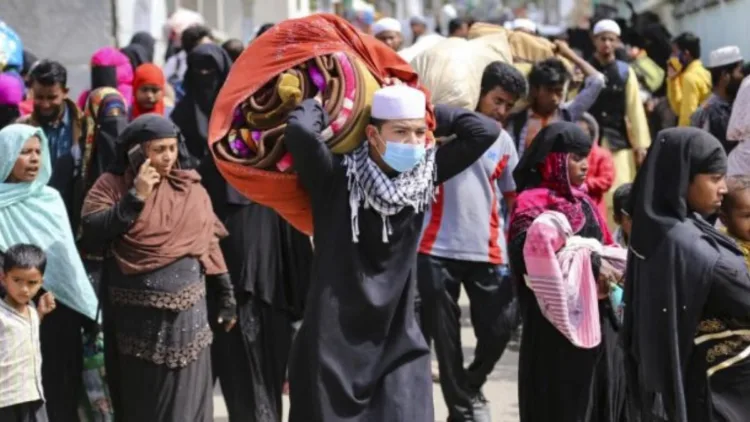The West Bengal police arrested five Bangladeshi nationals on January 13 in Sonarpur, South 24 Parganas district, for allegedly residing in the area illegally for the past year after crossing the India-Bangladesh border. The arrests were made following a tip-off about their illegal stay in the region.
The arrested individuals, all males, were set to be presented before the district court later in the day, where the public prosecutor was expected to seek police custody for further interrogation.
According to the police, efforts are underway to uncover the method they used to cross the heavily monitored border and determine their motives for settling in West Bengal. Early investigations suggest they were employed at a local garment factory, reportedly using fake Indian identity documents.
The owner of the house where the infiltrators had been staying is currently absconding, raising suspicions of a deeper conspiracy. Agencies have alerted all local police stations to track down the landlord.
Neighbours told the police that the arrested individuals rarely interacted with the local community, leaving little room for locals to learn about their backgrounds or activities. This lack of interaction and the sudden disappearance of the landlord have led the police to suspect an organized network facilitating such illegal activities.
Police sources revealed that the five men had secured employment using counterfeit Indian documents. Investigators are now probing the source of these documents and the network behind their creation and distribution.
The South 24 Parganas district, particularly the Sundarban region, is known for its long coastal border with Bangladesh. The area’s geographical remoteness, coupled with limited security arrangements, makes it a hotspot for illegal infiltration.
The district’s Gosaba block, comprising 13 remote islands, has been identified as one of the most vulnerable zones for infiltration. Of these islands, only one hosts a Border Security Force (BSF) camp, leaving the rest largely unmonitored. These islands, often frequented by local fishermen venturing into the deep sea, have reportedly been used as temporary shelters by illegal infiltrators.
Security agencies at both central and state levels have recently intensified surveillance in the Sundarban region. The lack of adequate infrastructure and challenging terrain have posed significant obstacles to implementing robust security measures.


















Comments